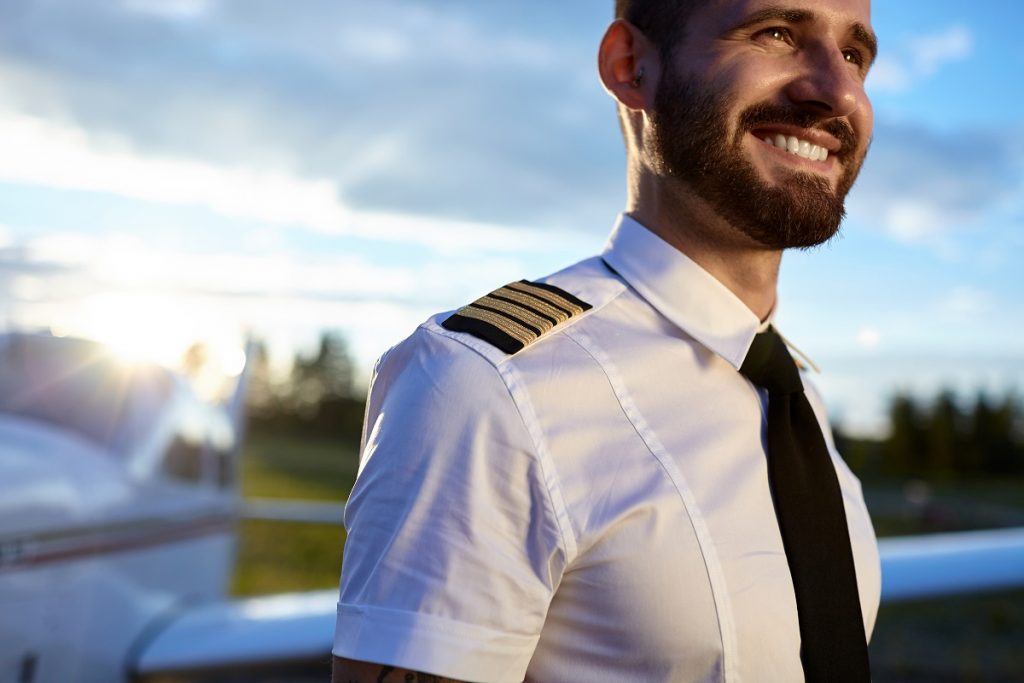- Aviation offers diverse careers like commercial pilots, aircraft technicians, and air traffic controllers.
- The proper education is crucial for an aviation career, and thoroughly research accredited programs and schools.
- Define your aviation goals to select the most suitable educational path and training programs.
- Private, commercial, and multi-engine training are essential steps towards becoming a commercial pilot.
- Networking with aviation professionals can provide valuable insights and help in decision-making.
Ever since the Wright Brothers successfully launched the first airplane, the field of aviation has become a symbol of humanity’s progress and innovative spirit. Everyone who ever watched a plane take off and disappear into the clouds was at least once enchanted by the idea of flying.
No wonder aviation career is still among the most sought-after and rewarding. Your ambition is well placed if you consider following your dreams of soaring up high.
There is something magical and awe-inspiring about airplanes, airports, and everything that has to do with flying. The idea of traveling to your dream destinations and getting paid for it is only one of the many perks of working in the aviation industry.
The field constantly changes and develops, so new opportunities exist to learn and grow. Plus, aviation is a field that genuinely connects the world and helps make it a smaller, more interconnected place.
This post will explore what it’s like to build an aviation career and some paths you can take to reach for the skies.
The World of Aviation
The aviation career field is diverse, and every role contributes to the overall function of the industry. Some of the most popular and in-demand roles are:
Commercial Pilot
The most well-known aviation career is a commercial pilot. These highly trained professionals are responsible for transporting people and goods safely and efficiently.
To become a pilot, one must undergo a rigorous training program and obtain a commercial pilot’s license. The training may vary depending on the type of aircraft and the airline you will be working for.
Aircraft Maintenance Technician
Aircraft maintenance technicians are responsible for ensuring that aircraft stay in top condition. They perform routine inspections, maintenance, and repairs on the plane’s mechanical, electrical, or avionic systems. The job is challenging, and it requires a unique set of skills and knowledge.
Air Traffic Controller

Air traffic controllers are the unsung heroes of the aviation industry. They work in control towers and use radar equipment and other systems to monitor the movement of planes and ensure their safe takeoff and landing.
The job is highly demanding and requires a clear mind, quick decision-making skills, and excellent communication abilities. To become an air traffic controller, you must complete a training program and obtain a Federal Aviation Administration (FAA) certification.
Choosing the Right Educational Path for Your Aviation Career
Whether you want to become a commercial pilot, an aircraft maintenance technician, or an air traffic controller, getting the right education is crucial. Many programs and courses are available, and choosing the right one can be daunting.
Define Your Aviation Goals
Before selecting an educational path, clarify your specific aviation career goals. Determine whether you aspire to become a commercial pilot, aircraft maintenance technician, air traffic controller, or pursue another aviation-related role.
Each career path may have different educational requirements and training programs. Knowing your goals will help you choose the most suitable educational route.
Research Accredited Programs and Schools:
Conduct thorough research to identify accredited aviation programs and schools. Look for institutions recognized and approved by aviation authorities, such as the Federal Aviation Administration (FAA) in the United States.
Accredited programs ensure you receive quality training and meet industry standards. When evaluating schools, consider location, program duration, faculty expertise, and available resources.
Seek Guidance and Advice
Reach out to aviation professionals, instructors, and mentors for guidance and advice. They can offer valuable insights into the aviation industry and help you make informed decisions about your education.
Additionally, consider visiting aviation schools, attending open houses, and speaking with current students to gain firsthand knowledge of the programs and facilities. Networking with professionals in your desired field can provide valuable recommendations and career insights.
Essential Training Programs

So, how do you start? The first step is getting the right education and training. Aviation programs range from certificate programs to advanced degrees in aviation.
Private Pilot Training
Private pilot training is the first step in pursuing an aviation career. It leads to a recreational pilot license and allows you to fly as a private pilot. The training includes a combination of ground school, flight training, and medical certification.
Commercial Pilot Training
Commercial pilot training is more advanced, leading to a commercial pilot’s license. This license allows you to fly for an airline or charter company. The training includes instrument rating, flight instructor rating, and multi-engine rating.
Commercial Multi-Engine Training
Commercial multi-engine training is an additional required program to become a commercial pilot. It teaches you to operate and fly multi-engine aircraft safely. This training is a must-have for any current or future commercial pilot.
A commercial multi-engine training program will help you advance your aviation career. It equips you with the skills and knowledge required to operate multi-engine aircraft, a critical step if you aspire to work for airlines or other multi-engine aircraft operations.
Working in aviation is a dream come true for many people. Pursuing a career in the industry requires significant dedication, hard work, and the proper education.
But the effort is well worth the reward. If you are passionate about airplanes, technology, and making a positive impact, the sky’s your limit.
Remember that you can achieve your skyward aspirations with enough commitment and effort.

